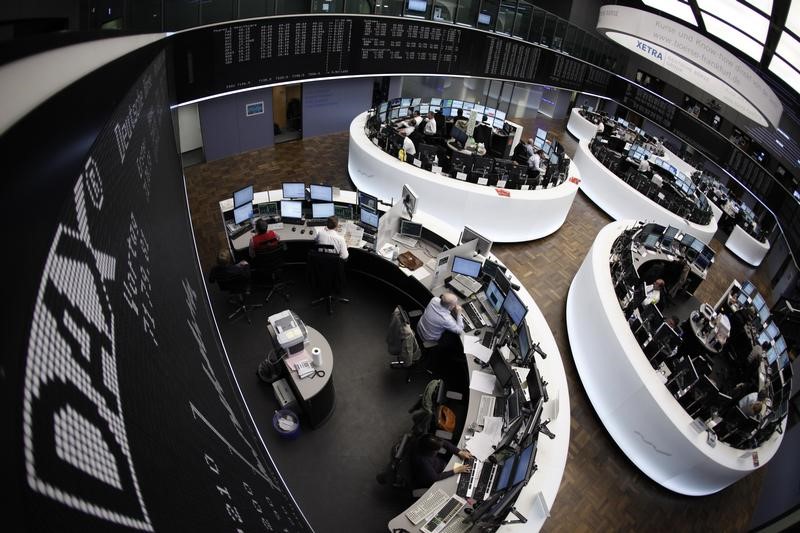Street Calls of the Week
Investing.com -- Deutsche Bank (ETR:DBKGn) forecasts the Euro Stoxx 50 to rise by 6% by the end of 2025, maintaining its index target unchanged despite ongoing trade tensions.
The bank’s base case assumes a 10% baseline tariff along with sector-specific levies but sees this impact as already reflected in current earnings estimates.
“This seems more than adequately reflected in the negative 10% 2025 earnings revisions since October 2024, even considering a negative effect from a weaker USD,” Maximilian Uleer, Head of European Equity and Cross Asset Strategy at Deutsche Bank, said in a report.
The strategist estimates that the base case tariff scenario would result in a hit of just under 4% to 2025 earnings, a figure deemed to be absorbed by the 10% earnings downgrades since October 2024.
The report also outlines a downside scenario where tariffs escalate to 20%, potentially wiping out earnings growth for 2025 and driving a 10% drop in valuations.
However, Uleer sees this outcome as “very unlikely, especially because of the self-harming effect for the U.S. economy and capital market.”
European equities have outperformed this year, aided by strong fiscal measures, particularly in Germany. Deutsche Bank’s preferred MDAX index has risen 10% versus the STOXX 600 since February, and its top basket of German recovery stocks is up 28% since inception.
But despite the outperformance, Uleer continues to favor small- and mid-cap names over large caps.
On a regional level, Uleer has turned tactically neutral between U.S. and European equities, having previously tilted toward the U.S. following the easing of tariff rhetoric in April. Still, he maintains a strategic preference for European markets, supported by fiscal stimulus, rebounding sentiment, and manufacturing recovery.
For the Euro Stoxx 50, the strategist sees valuations stabilizing, with earnings growth expected to resume in the second half of the year and into 2026.
He cited recent tailwinds including Germany’s front-loaded fiscal spending, the passage of the U.S. tax bill, and new NATO spending targets as factors that support the constructive equity outlook.
On sectors, Uleer remains positive on Banks, Construction, and Industrials excluding Defence, while maintaining a cautious stance on Health Care and Consumer Staples.
